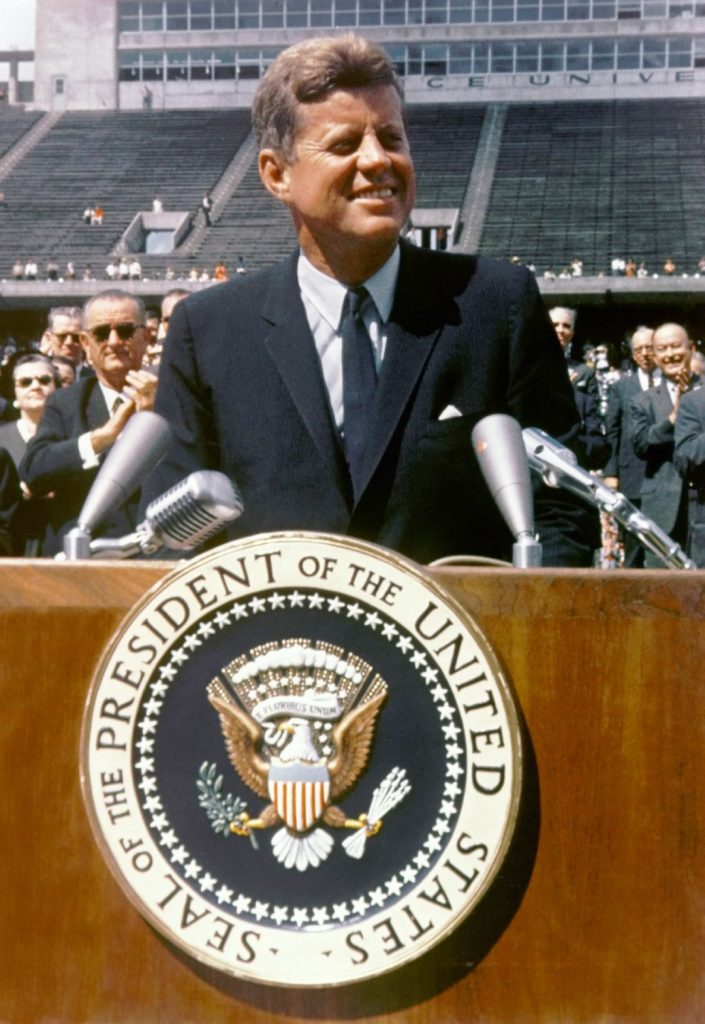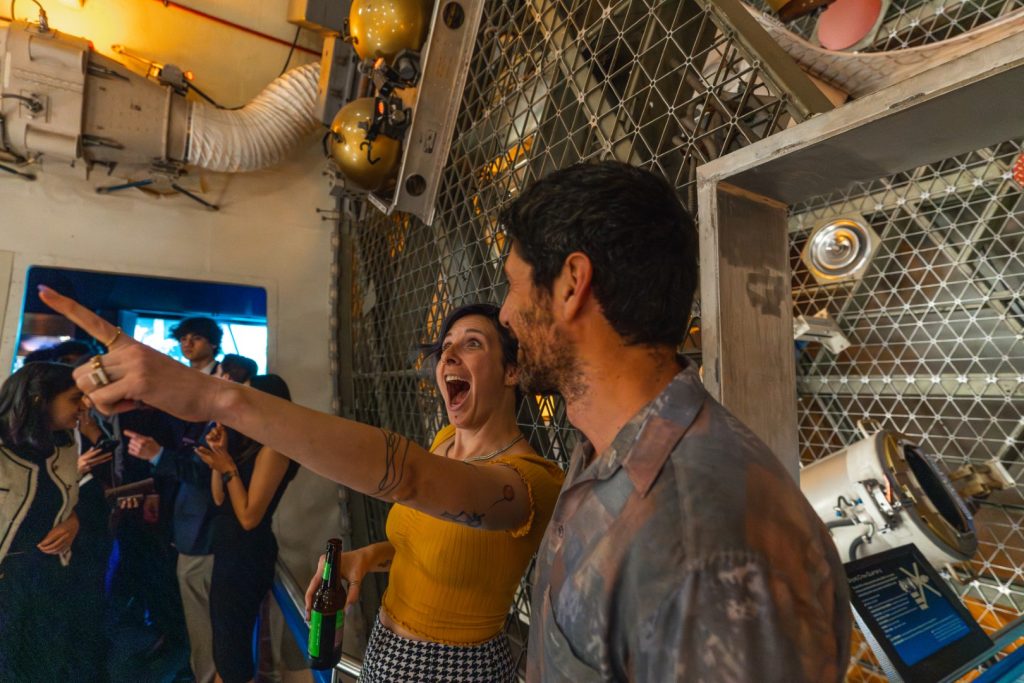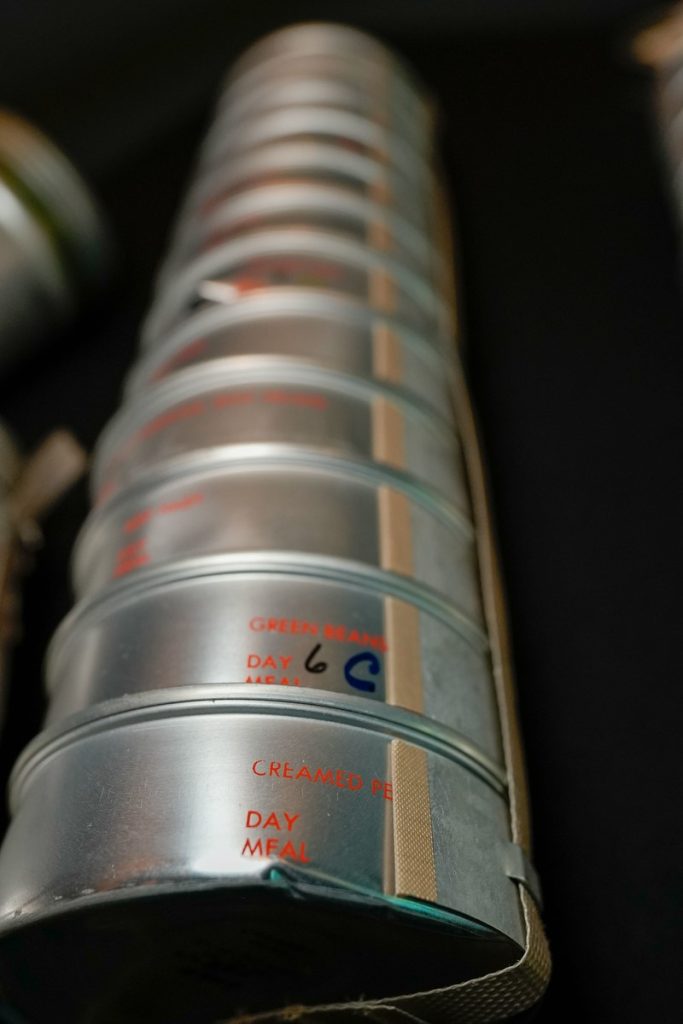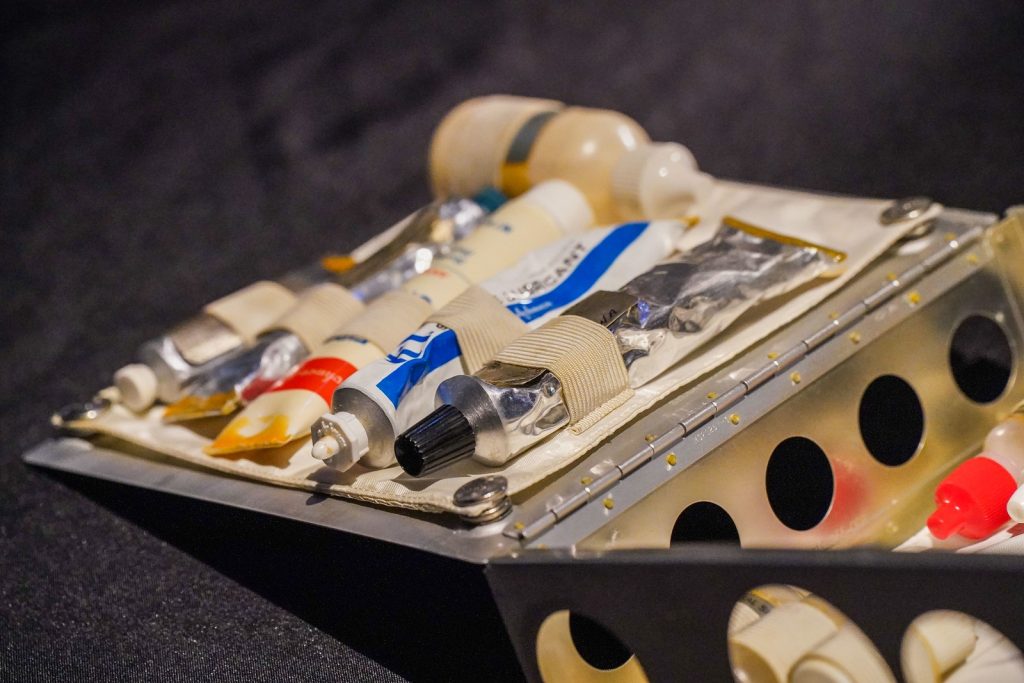Home » Support » Mission Impact » Preserve the Past, Support the Future
Space Center Houston opened its doors in 1992 with a goal to not only celebrate the legacy of America’s spaceflight program, but preserve and conserve its physical artifacts. To this day, more than 400 space artifacts and exhibits tell the story of human spaceflight: from the breathtaking first stages of NASA to the advancements of modern space travel and exciting future plans to return to the Moon, venture to Mars, and explore further reaches of space.
Our commitment to preserve space artifacts is led by Paul Spana, Director of Collections and Curator, and Carmina Mortillaro, Collection Manager, who together share a combined 70 years of museum exhibit and design experience. Along with outside consultants who assist on specialized projects, this team ensures that our historical pieces are cared for according to standards that uphold our designation as a Smithsonian affiliate.

Smithsonian standards involve precise casing requirements, careful regulation of temperature, humidity, and lighting, as well as the ongoing authentication of artifacts. Such authentication efforts were recently applied to one of the most important pieces in our collection: the “Moonshot” Lectern, from which President John F. Kennedy first challenged America to go to the Moon.
In 2023, a Kennedy historian questioned the authenticity of the lectern that Space Center Houston received from Rice University, due in part to the fact that presidents travel with their own lecterns. While that may be true now, it is not always the case in the 1960’s. To back up his claim, the historian pointed out the absence of a distinctive black line saw-cut on the lectern’s lower portion, which is visible in film and still photography from the well-documented historic speech delivered at Rice University Stadium on September 12, 1962.
These concerns prompted Space Center Houston to launch a thorough investigation into the lectern’s authenticity, which took place alongside customary conservation activities to clean and restore the piece after years of display. For this comprehensive restoration, our Collections team collaborated with officials from the John F. Kennedy Presidential Library, Rice University, and the IBM Archives as well as Steve Pine, the Senior Decorative Arts Conservator for the Houston Museum of Fine Arts.
Over a period of six months, the team carefully disassembled the lectern and its many parts, discovering a mechanism that could raise or lower the top third of the lectern to suit the speaker’s height. While this mechanism was no longer functional, our team was able to raise the lectern to a height that would have been appropriate for President Kennedy, revealing the black line saw-cut.
As refurbishment continued, layers of wood varnish and thinned paint were removed until the lectern’s original finish was uncovered. Its distinctive wood grain pattern exposed, the lectern clearly matched photographs from the day of Kennedy’s speech, making it conclusive that the lectern is the historic JFK lectern pictured on that day.
Once fully restored and authenticated, Space Center Houston crafted a new display case built to Smithsonian specifications, ensuring the lectern’s continued preservation for all to see. On September 12, 2023—the 61st anniversary of President Kennedy’s speech—the lectern was placed back on display alongside Kennedy’s inspiring words and the exhibit reopened with remarks by Space Center Houston President and CEO, William T. Harris: “This lectern represents a pivotal moment in history and serves as a powerful symbol of human achievement and aspiration. Its restoration and return to public display will allow us to continue educating and inspiring visitors for generations to come.”
The JFK lectern’s adjustable mechanism is far from the first surprise found in our artifacts. The Skylab 1-G Trainer on display at Space Center Houston is the exact equipment that all three Skylab crews used from 1972-1973 to prepare for life in Earth’s orbit. So it’s fitting that when our Collections and Conservation team began their months-long assessment of the trainer, they found that many cabinets and storage lockers still contained items like what would have been used on Skylab in space: medical equipment, water filters, human waste disposal bags, food storage containers and checklists. Even a Coronagraph Containment Measuring device was discovered, which astronauts used to study what particles might be floating around in Skylab.
As a testament to the longstanding educational opportunities of space, conservators were especially delighted to find parts of three student projects leftover from NASA’s invitation to high school students to design experiments for testing on Skylab.
Visiting conservators helped the Collections team inventory these artifacts before they were put back into the trainer and recommendations were made for their long-term care and conservation. This degree of evaluation is now the baseline for regular condition checks and conservation protocols for all artifacts at Space Center Houston.
As stewards of these historic objects, it is our responsibility to monitor how they age and perform needed maintenance to preserve them for future generations. Plans are also being made to engage a new generation in the preservation process by bringing in conservation students to help document, maintain, research, and treat the artifacts in the Space Center Houston collection.
Just as human spaceflight constantly evolves, so does our collection of artifacts at Space Center Houston. We have many ongoing conservation projects happening now, and some that still await proper funding to support cataloging, assessing, upgrading storage, and much more. Space Center Houston is a 501(c)(3) nonprofit, and your support is critical to move these projects forward with necessary staff, including student interns who will help us care for history while gaining valuable experience in museum conservation.
By helping us preserve the past, you can be a part of the future of human spaceflight. Support Space Center Houston’s conservation efforts by contacting Amelia Kleiman, Director of Major Gifts, at [email protected] or by calling 281-244-2119.



With your support and participation, Space Center Houston is able to provide impactful and revealing experiences to nearly 300,000 students and educators each year.
HOURS TODAY

When you give, you make a lasting impact on the future generations of explorers, innovators, astronauts, and beyond.

Use code WEB15 for 15% off a Space Center Houston membership + an extra month, free parking, discounts and other stellar perks.